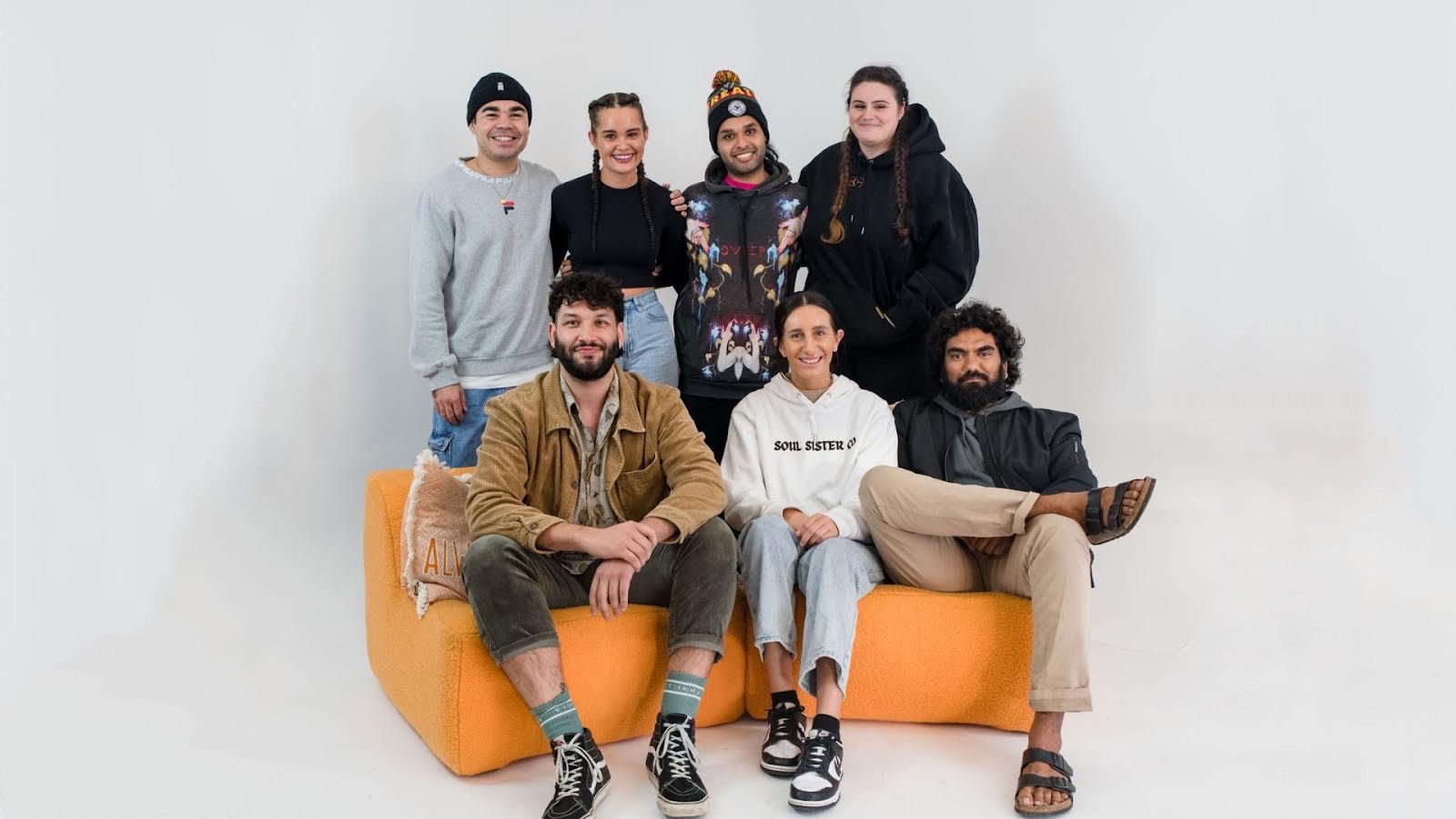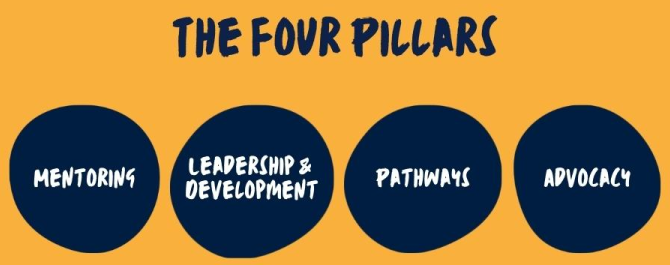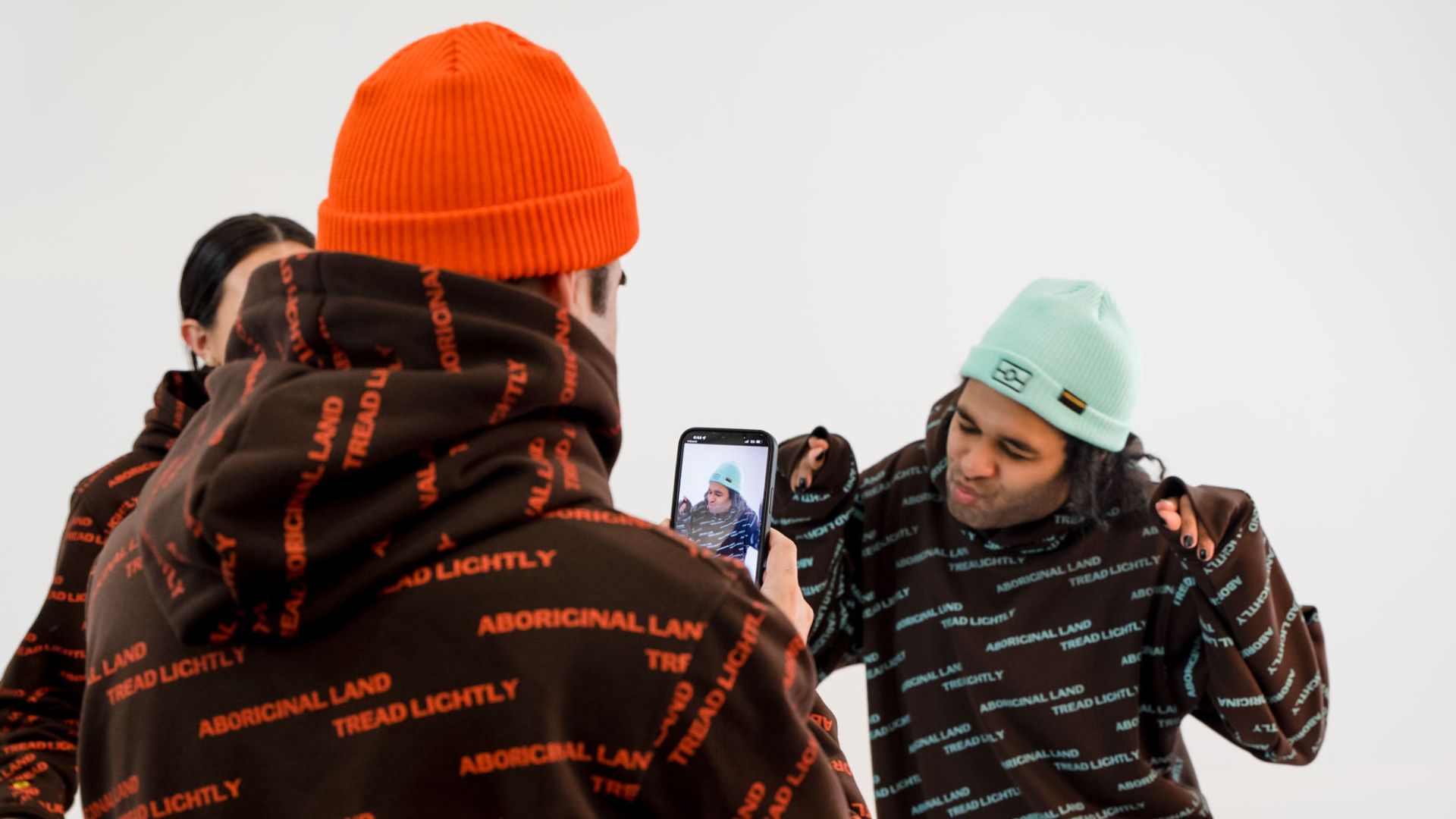
Overview
The participants of the Fullaship Program, ‘Fellows’, will experience a range of both virtual and in-person session. They will share lived experience, build connections and networks, and create and experiences that aim to challenge, encourage and inspire them to achieve their own goals and aspirations. Through this, recipients will receive individualised, group mentoring and coaching to enhance their development in the areas of interest, including but not limited to:
- Social and Cultural Entrepreneurship
- Social Advocacy and Policy
- Education
- Academia and Research
- Community Development
The Fullaship program is tailored to each Fellow’s individual interest and aspirations and will be built on four main pillars: Mentoring, Leadership and Development, Pathways, and Advocacy. The Fullaship Program will have a strong focus on building self-determination, wellbeing, community and cultural support and connection. A brief overview of each of the four pillars and activities included below.

Mentoring
Fundamental to supporting young people grow and achieve their goals is mentoring. As a key pillar of the program, fellows will be provided with many opportunities to engage with Aboriginal and Torres Strait Islander mentors in group and individual settings. Fellows will connect with Elders and community leaders to help guide, nurture and strengthen their cultural identity. In addition to strong cultural mentors, fellows will have other opportunities to connect with peer and industry mentors.
Fellows will engage in a range of group mentoring opportunities that will focus on building cultural identity, empowerment, resilience and broad skills. Individuals will also be paired with an mentor who has experience in their chosen field of interest. This may include but is not limited to, social and cultural entrepreneurship, academia and research, policy and advocacy, education and community development.
Leadership and Development
Fellows will have access to a range of opportunities related to personal and professional development and leadership. Through this pillar fellows will engage in a range of individual and collaborative activities to build their capacity in leadership and teamwork, develop networks, and further their skills in public speaking, communication, planning and organising. Additionally, recipients will receive personalised development plans to help strengthen skills in their chosen areas of interest.
Guest speakers will also share their own lived experience, challenges and strategies for staying strong. Fellows will learn about the challenges of working in various industries and how others connect to culture and build their wellbeing. Guest speakers will include Elders and community leaders, social advocates, business owners and leaders, academics and other young people who are challenging what it means to be a young Aboriginal and/or Torres Strait Islander person in today’s society.
Fellows will also explore their own leadership styles and identify areas they could work on and strengthen.
 Advocacy
Advocacy
Throughout the program fellows will be guided through the various arms of advocacy at a policy and government, organisational, community and in grass roots level. They will learn the fundamentals of advocacy including the role of advocacy in national and state policy development. They will also explore leadership in advocacy, with a focus on learning practical skills such as organising, communication, negotiation and diplomacy.
Through this, fellows will develop their own skills in advocacy while also understanding how to maintain safety and establish boundaries in the advocacy and activist space. Fellows will be equipped with an advocacy toolkit and learn how to channel advocacy effectively, becoming leaders and agents for change. During this pillar fellows will hear from a range of guest speakers working in advocacy and social change, as well as completing an advocacy plan for a chosen area of interest.
Pathways
Through this pillar fellows will explore and engage with a variety of projects and activities that seek to grow their window of opportunity. They will have opportunities to explore their own areas of interest and work to complete a project that aligns with areas of the strengthening of cultural values, education and advocacy, social engagement and holistic health and well being. This pillar provides an opportunity for fellows to integrate the skills they have developed throughout the fellowship and apply them in a real-world setting.


